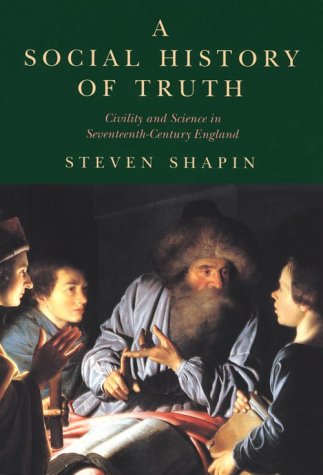How do we come to trust our knowledge of the world? What are the means by which we distinguish true from false accounts? Why do we credit one observational statement over another? In "A Social History of Truth", Shapin engages with these universal questions through a recreation of a crucial period in the history of early modern science: the social world of gentlemen-philosophers in 17th-century England. Steven Shapin paints a picture of the relations between gentlemanly culture and scientific practice. He argues that problems of credibility in science were practically solved through the codes and conventions of genteel conduct: trust, civility, honour and integrity. These codes formed, and arguably still form, an important basis for securing reliable knowledge about the natural world. Shapin uses detailed historical narrative to argue about the establishment of factual knowledge both in science and in everyday practice. Accounts of the mores and manners of gentlemen-philosophers are used to illustrate Shapin's broad claim that trust is imperative for constituting every kind of knowledge.
He argues that knowledge-making is always a collective enterprise: people have to know whom to trust in order to know something about the natural world.
- ISBN10 0226750183
- ISBN13 9780226750187
- Publish Date 15 June 1994
- Publish Status Out of Stock
- Out of Print 15 June 2015
- Publish Country US
- Imprint University of Chicago Press
- Edition 2nd ed.
- Format Hardcover
- Pages 508
- Language English
